The grain of truth: industry compliance on flour fortification in Mexico

Executive summary
Poor-quality diets are linked to the rise of not only overweightness and obesity but also micronutrient deficiencies – a lack of vitamins and minerals essential for health. In Mexico, micronutrient deficiencies are an important public health concern. Many adults and teenagers do not get enough iron, zinc, calcium or magnesium in their diet. A shocking nine out of ten women are not getting enough iron.1 One in four children suffer from anaemia, and at least half of these cases are attributable to iron deficiency. The severity of this problem cannot be overstated – evidence shows that if nutritional anaemia is not detected and resolved before a child reaches two years old, the damage to healthy physical and mental development becomes irreversible.
Mexican law obliges flour companies to fortify wheat and maize flours with iron, zinc, folic acid and other B vitamins. The current standards for this fortification have been in place for nearly a decade. Food fortification is an important and effective tool in the fight against micronutrient deficiencies – but only when it is implemented properly. Building on previous reports, which highlighted significant gaps in the monitoring and enforcement of flour fortification in Mexico, this report reveals the results of the first independent testing of 61 different wheat and maize-flour products, the majority of which were purchased in the states of Mexico City and Chiapas at the end of 2018.
Our investigation revealed that only 7% (4 out of 61) of packaged maize and wheat-flour products are fortified adequately. This represents a huge failure on the part of the majority of companies to fortify correctly. The four adequately fortified products are all wheat flours; three are from the brands Selecta, Sol de Oro and Rio Lerma, and one is from supermarket La Comer’s own brand, Golden Hills. The situation regarding maize flours is particularly bad; here, no companies are fortifying adequately. Companies either use the wrong type of iron or do not do enough to ensure levels of iron and zinc consistently meet the requirements. As maize represents 72% of the market share for grain consumed in Mexico, maize-flour companies’ irresponsibility is unacceptable, and should be addressed as a priority. This report reveals that even essential maize-flour products from Diconsa and from Sistema Nacional para el Desarrollo Integral de la Familia (DIF) Chiapas, government programmes intended to provide nutritious foods to the most vulnerable families, are not adequately fortified. These products are not only breaking the law but also completely failing to ensure vulnerable families increase their consumption of nutritious foods.
The food industry has an obligation to follow the law and a moral responsibility for tackling nutritional challenges. However, the flour industry in Mexico is failing on both counts. This is not just a theoretical problem; the personal stories presented in this report show the realities of living with hidden hunger, the consequences of which are significantly exacerbated by the industry’s dereliction of its duties.
This report presents a clear opportunity for the new government in Mexico to take a fresh look at the actions of the food industry and establish programmes that guarantee adequate and nutritious foods for all. The new administration should immediately take corrective measures to address the failings of the flour industry and uphold the laws that were established to guarantee that Mexican people get essential nutrients and vitamins through their staple foods.
PARTNERS

You might also like...

Corn Fakes: The social and economic costs of the removal of micronutrients from Kellogg’s cereals
This report reveals the cereal-giant Kellogg's has continued to remove micronutrients from its cereal in 2019, and goes further to estimate its savings from this practice and the cumulative costs to Mexican ...

Maizena’s missing micronutrients
This report looks at Unilever’s voluntary initiative on fortification in Mexico, and reveals a glaring lack of consistency between the company’s commitments and its business practice when it comes to fortifi...

Micronutrient deficiencies in Mexico: Ironing out the kinks
This briefing looks into the issue of flour fortification in Mexico, specifically at whether flour companies are following the recommendations on the most effective iron sources.